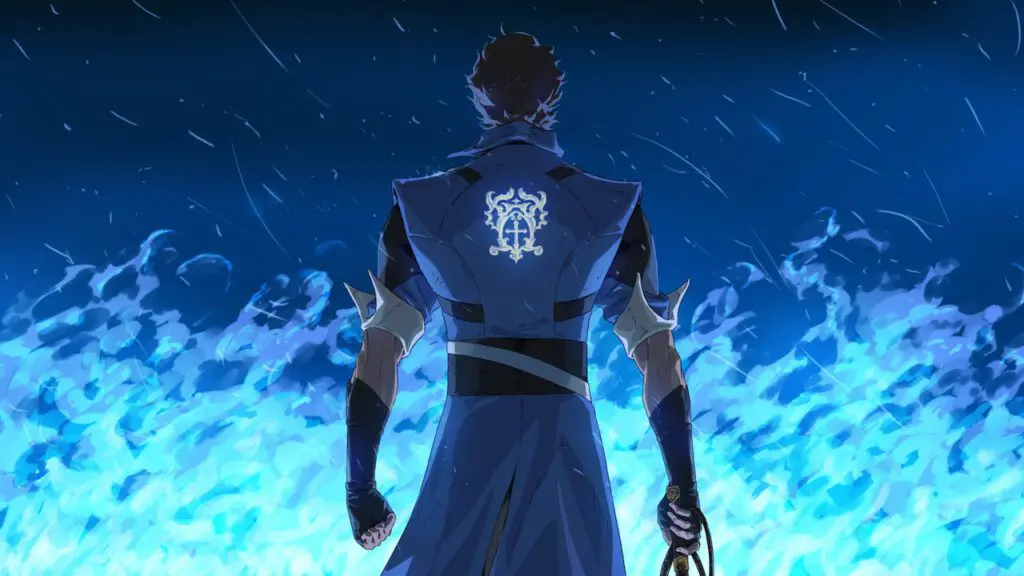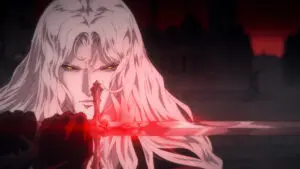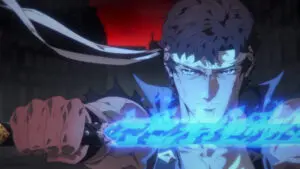Summary
Netflix have done it again with Castlevania: Nocturne, providing a spin-off that works in all the same ways that the main series did while introducing new characters, villains, and horrors.
Nobody, least of all me, expected an animated adaptation of the Castlevania franchise, streaming on Netflix of all places, to be the best video game adaptation of all time. And yet, here we all are. You can’t have a hit without a subsequent spin-off, so Castlevania: Nocturne, like The Witcher: Blood Origin before it, felt like an inevitability.
But was it worth the wait? The eight-episode first season, created and written by Clive Bradley thanks at least in part to the lingering toxicity of the main series’ creator Warren Ellis, and adapted from both Castlevania: Rondo of Blood and the utterly beloved Symphony of the Night, has high expectations to live up to, after all.
Castlevania: Nocturne Season 1 review and plot summary
I won’t keep you in suspense — Castlevania: Nocturne is very good.
READ: Castlevania Season 2 Review
This should perhaps come as little surprise to fans of the first four seasons since much has remained the same. Crucially, Powerhouse Animation remains the primary studio behind the production, with Sam and Adam Deats directing, and that counts for a lot.
Nocturne has the same visceral style and anime-inspired look as its predecessors; the same energy in its action and morbid imagination in its horrors, of which there a plenty. And the tone is virtually identical, a snappy mish-mash of serious character drama, fanciful mythology and worldbuilding, and jokey patter.
The characters involved in that drama, though, are at least new — more or less, anyway.
The protagonist is Richter Belmont (Edward Bluemel), a descendant of Trevor and Sypha from the original show. He’s joined by Maria Renard (Pixie Davies), a spellcasting revolutionary, and eventually by Annette (Thuso Mbedu), a former slave from Saint-Domingue perhaps descended from a God, and her compatriot Edouard (Sydney James Harcourt), a freeborn opera singer whose soft voice backdrops a number of integral action sequences and dramatic moments.
And the villains are new. Two centuries after the war for Wallachia, the fight for vampiric superiority has traveled all the way to France during the height of the Revolution, where suddenly emboldened bloodsuckers want to quell the rebellion so that their Messiah can devour the sun and ensure a vampire is in the ear of every self-serving aristocrat throughout Europe.
And there’s a personal angle, obviously. In fact, there are several.
READ: Castlevania Season 4 Ending Explained
“A nocturne is a musical composition that is inspired by, or evocative of, the night,” according to the dictionary, and it’s a fitting subtitle for this show, which is about vampires and demons and Gods and religion in the midst of a famously bloody revolt.
Is Castlevania: Nocturne worth watching?
With its three-dimensional characters, knotty themes of class disparity and religious corruption, kinetic battles, and macabre horrors, Castlevania: Nocturne is a can’t-miss show for fans of the previous series.
Sure, it might rely a little too heavily on exposition and, yes, it lacks some of the scale and grandeur that defined Castlevania Season 4. But that’s to be expected since, even by the end, it really feels as if it’s just getting started.
What did you think of Castlevania: Nocturne Season 1? Comment below.
You can watch this series with a subscription to Netflix.




